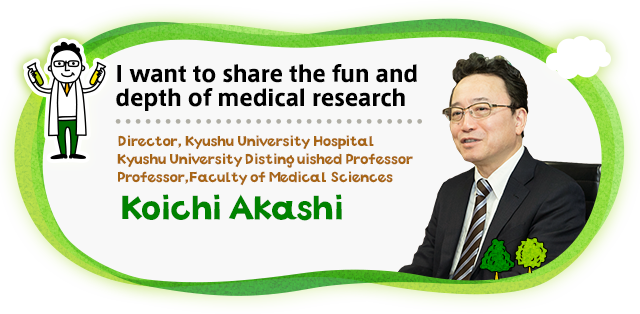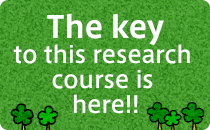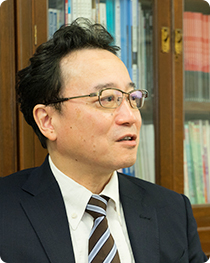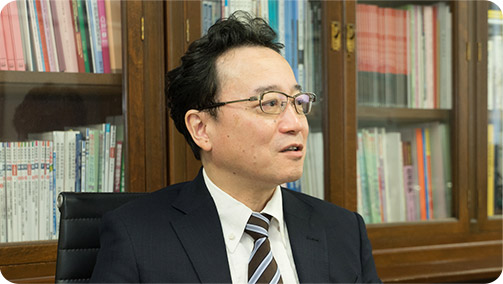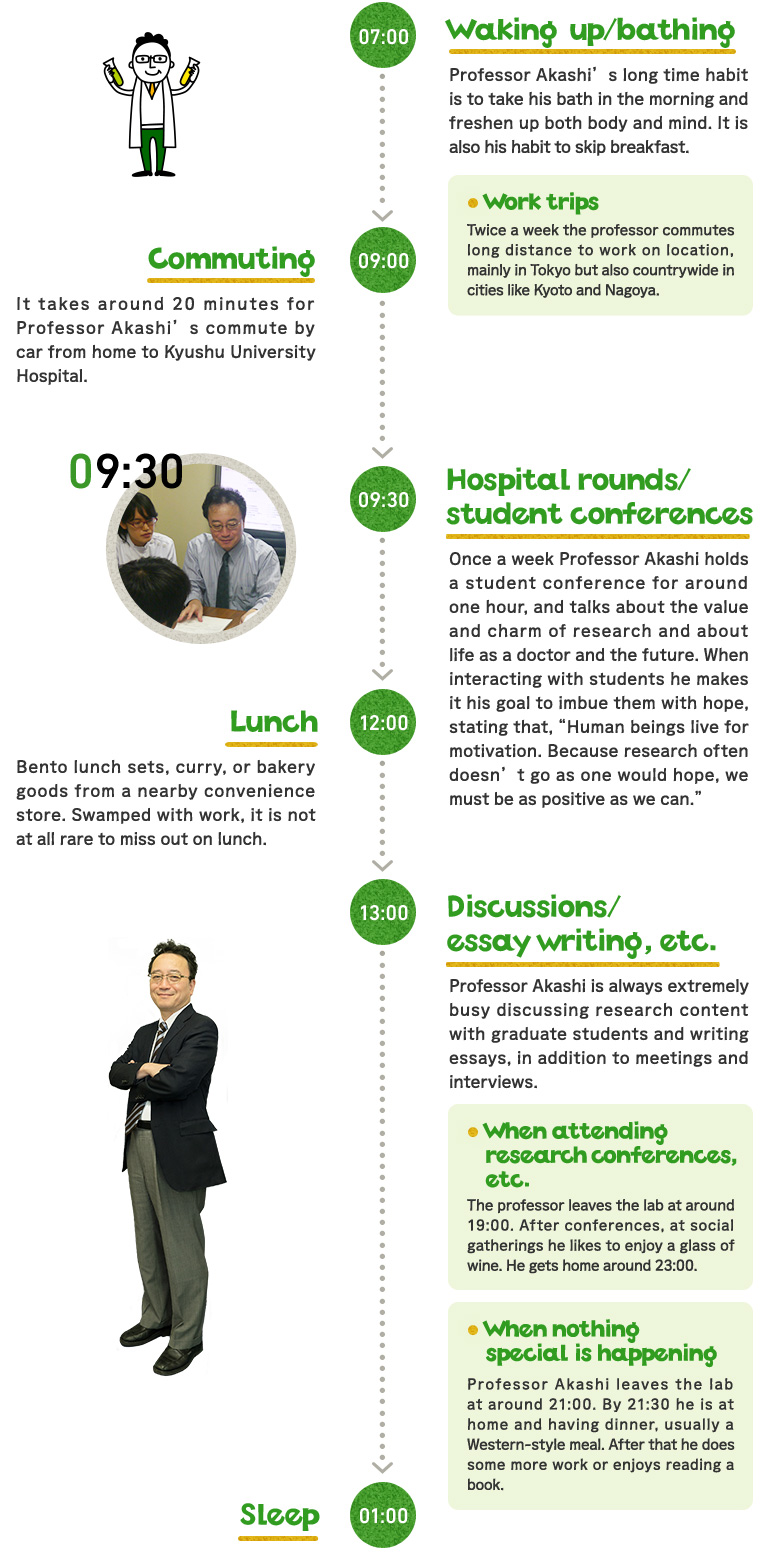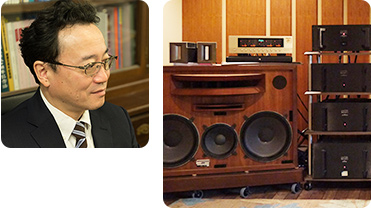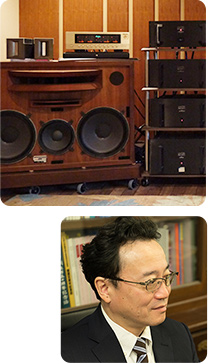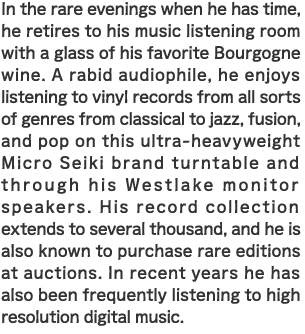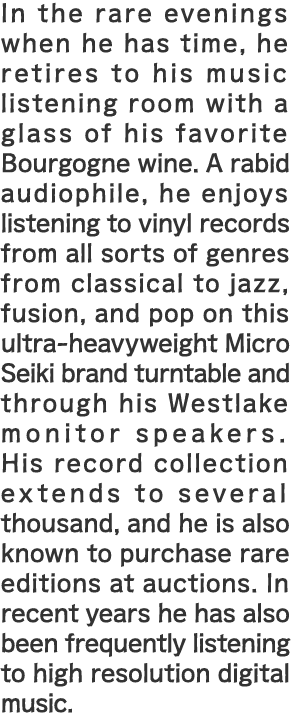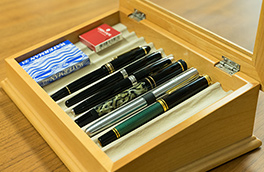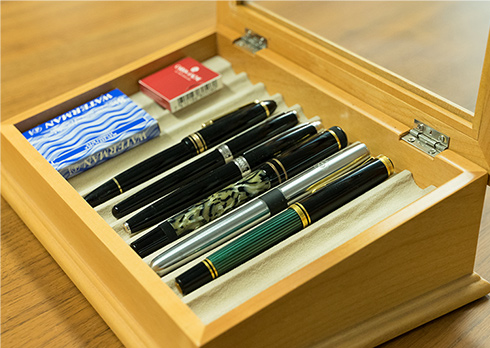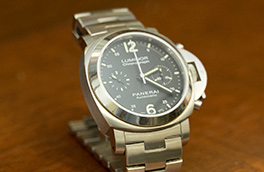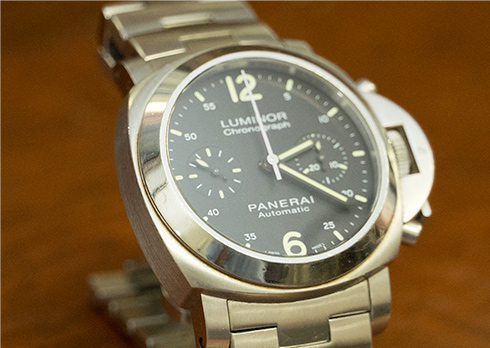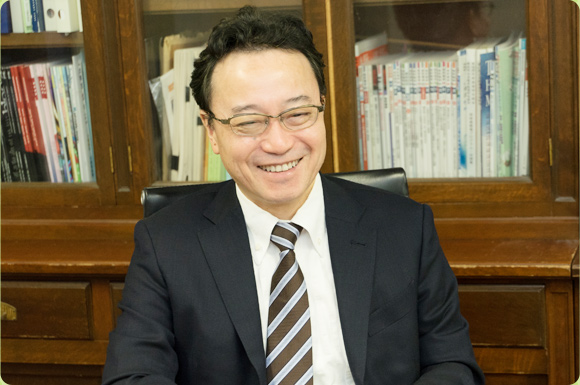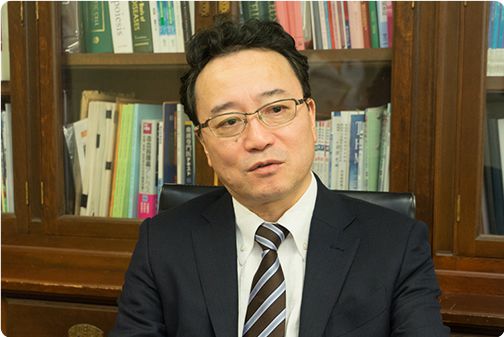 A research staff can get along well with Professor Akashi who is "frank and easy to communicate with."
A research staff can get along well with Professor Akashi who is "frank and easy to communicate with."
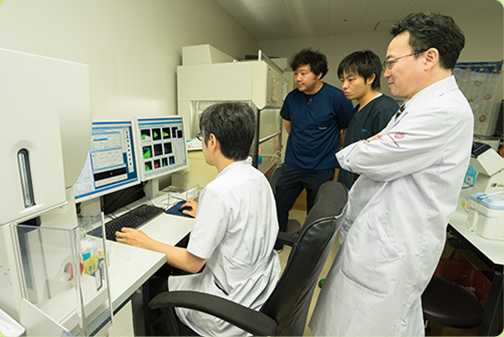 Located in the middle of Kyushu University Hospital lies a laboratory closed to non-staff. Carrying out daily experiments and verification.
Located in the middle of Kyushu University Hospital lies a laboratory closed to non-staff. Carrying out daily experiments and verification.
 A research staff can get along well with Professor Akashi who is "frank and easy to communicate with."
A research staff can get along well with Professor Akashi who is "frank and easy to communicate with."
The area that I oversee, our department brings together the separate areas of hematology, neoplasia, the cardiovascular system, immunity, collagen and infectious diseases, etc. is focusing on comprehensive internal medicine. A special characteristic tradition was derived from the first pioneer professor of our department—Professor Ryukichi Inada (a Noble Prize candidate for his work in identifying the Weil's disease pathogen and establishing a method for its suppression)—is it's not being limited to one specialty and its advancement of the separate areas of research and pathology in a way that understands the human body from a variety of perspectives.
 Located in the middle of Kyushu University Hospital lies a laboratory closed to non-staff. Carrying out daily experiments and verification.
Located in the middle of Kyushu University Hospital lies a laboratory closed to non-staff. Carrying out daily experiments and verification.
I was influenced by my father who was a physician and by movies and TV programs about disease and medical treatment like Ai to shi o mitsumete (Staring into Love and Death) which developed my strong interest in cancer. When I started studying medicine, the field of hematological disease had the most advance research into cancer, and I also had an interest in hematopoietic neoplasia like leukemia and lymphoma which was a popular area of study. Since then, I have consistently worked with hematology, particularly researching cancer stem cells primarily related to leukemia and lymphoma, and specializing in hematopoietic stem cell transplantation as regenerative medicine.
While all of the various cells such as erythrocytes, leukocytes, and platelets, etc. that compose people's blood cells are created out of the hematopoietic stem cells within bone marrow, the foundation of the composition of cancers also exists in stem cells. The particular feature of our research is to focus not on the overall cancer composition made up of various cell groupings but rather on the cancer stem cells that are source of cancer. Why do cancer stem cells develop and how are they sustained? Elucidating this puzzle and developing new technologies that can eradicate cancer stem cells is the aim of our research. One of our recent big accomplishments was identifying the cell surface molecule TIM-3, a unique protein expressed at a high frequency in acute myelogenous leukemia stem cells. By creating a TIM-3 antibody that recognizes this and by developing technology that can eradicate leukemic stem cells, we are working toward implementation through collaborative research with a pharmaceutical company.


Illness provides an important opportunity to obtain the biostudies knowledge that was prepared for us by God. Ultimately intervening in the illness and bringing about a state of normalization based on results obtained through research—I believe this is the greatest goal of medical research and the source of its appeal. Learning about the makeup of the biological entity known as the human being is connected to not only the conquest of illness but also to human existence and fate. This is also a huge factor in making it worthwhile. I believe that all medical researchers, to a greater or lesser extent, are driven by this sort of noble motivation.
Cancer stem cells are "evolution-type cells" that propagate rapidly by adapting to the environment; and, in this research field, for example, we are seeing an expansion in complex biostudies areas that do not fit into the category of the regular "central dogma". In case of cancer, it is possible that metabolic abnormalities incite genome variation through epigenome mutation. In order to make these areas clear, technical tools are currently being developed one after the other, which include single cell genome analysis, mass spec cytometry, a new type computed microscope that gives full locational information of single cells, and so on. In such a fortunately blessed research area, another great part of its appeal is the possibility to conduct research with human specimens.
When one says "medical research", many people immediately think of medical treatment, but it is clear that there is an important need for not only applied research but also for that which covers all levels from the fundamentals to clinical treatment. All medical researchers are confident that we have a mission to "contribute to human being." I, too, am one of those people, and in the future as well, I want to go on sharing the fun and depth of medical research with the next generation.

![]()




